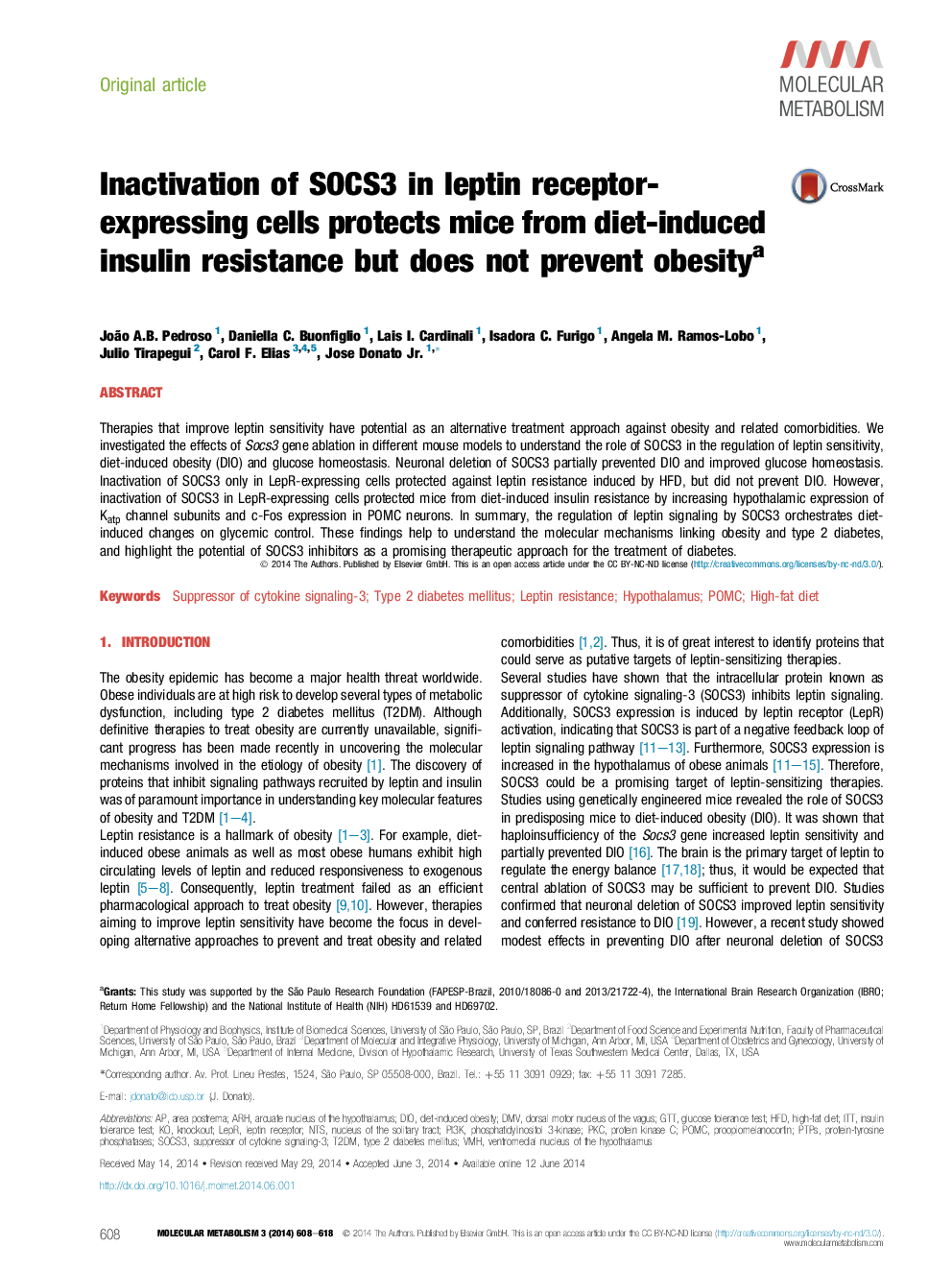| Article ID | Journal | Published Year | Pages | File Type |
|---|---|---|---|---|
| 3001626 | Molecular Metabolism | 2014 | 11 Pages |
Therapies that improve leptin sensitivity have potential as an alternative treatment approach against obesity and related comorbidities. We investigated the effects of Socs3 gene ablation in different mouse models to understand the role of SOCS3 in the regulation of leptin sensitivity, diet-induced obesity (DIO) and glucose homeostasis. Neuronal deletion of SOCS3 partially prevented DIO and improved glucose homeostasis. Inactivation of SOCS3 only in LepR-expressing cells protected against leptin resistance induced by HFD, but did not prevent DIO. However, inactivation of SOCS3 in LepR-expressing cells protected mice from diet-induced insulin resistance by increasing hypothalamic expression of Katp channel subunits and c-Fos expression in POMC neurons. In summary, the regulation of leptin signaling by SOCS3 orchestrates diet-induced changes on glycemic control. These findings help to understand the molecular mechanisms linking obesity and type 2 diabetes, and highlight the potential of SOCS3 inhibitors as a promising therapeutic approach for the treatment of diabetes.
